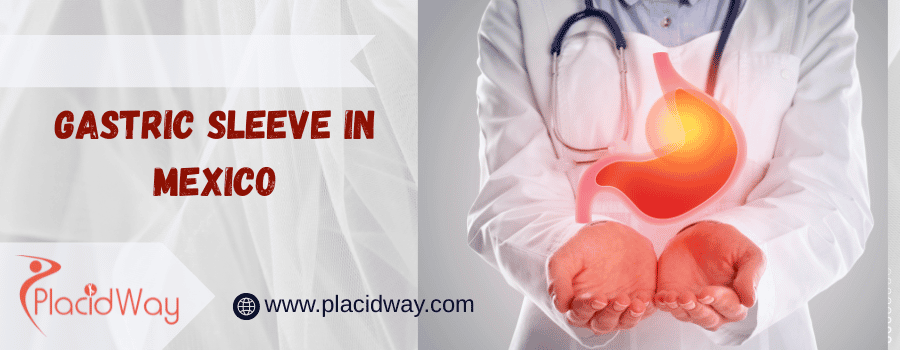Gastric Sleeve in Mexico: Understanding Your BMI Eligibility

Considering gastric sleeve surgery in Mexico is a significant step towards a healthier life. One of the first questions many individuals have is about the eligibility criteria, particularly the Body Mass Index (BMI) requirement. While specific criteria can vary slightly between clinics and surgeons, there are general guidelines widely followed by reputable bariatric surgery providers in Mexico.
The BMI is a key indicator, but it's not the only factor. Surgeons also consider your overall health, the presence of obesity-related health conditions (often called co-morbidities), your weight loss history, and your commitment to long-term lifestyle changes. Understanding these requirements will help you determine if gastric sleeve surgery is a suitable option for you and prepare for your consultation.
What is the general BMI requirement for gastric sleeve in Mexico?
Mexico has become a leading destination for gastric sleeve surgery due to its affordability and high-quality care. The BMI requirements for this procedure are often more flexible than in some other countries, making it accessible to a broader range of patients. Here's a breakdown of the typical guidelines:
- BMI of 35 or Higher: If your BMI is 35 or above, you are generally considered a strong candidate for gastric sleeve surgery, regardless of whether you have specific co-morbidities. This level of obesity often indicates a need for surgical intervention to achieve substantial and sustainable weight loss.
- BMI between 30 and 35: For individuals with a BMI between 30 and 35, eligibility typically requires the presence of one or more significant obesity-related health conditions. These are also known as co-morbidities, and they indicate that your weight is negatively impacting your health.
It's important to remember that these are general guidelines. Individual clinics and surgeons may have their own specific thresholds or consider exceptions based on a comprehensive medical evaluation.
What are obesity-related health conditions (co-morbidities) that can qualify you?
These co-morbidities indicate that your weight is causing or exacerbating serious health issues, making weight loss surgery a medically necessary intervention. The improvements in these conditions after gastric sleeve surgery can be dramatic, often leading to remission or significant reduction in medication.
- Type 2 Diabetes: Obesity is a major risk factor for Type 2 Diabetes. Gastric sleeve surgery can lead to significant improvement or even remission of diabetes, often due to hormonal changes and weight loss.
- High Blood Pressure (Hypertension): Excess weight places a strain on the cardiovascular system. Losing weight through gastric sleeve can significantly lower blood pressure, reducing the risk of heart attack and stroke.
- Severe Sleep Apnea: This condition, characterized by pauses in breathing during sleep, is often linked to obesity. Weight loss from gastric sleeve surgery can greatly improve or resolve sleep apnea.
- High Cholesterol (Dyslipidemia): Obesity often contributes to unhealthy cholesterol levels. Weight loss surgery can help normalize these levels, reducing the risk of heart disease.
- Joint Pain: Carrying excess weight puts immense stress on joints, particularly the knees and hips, leading to chronic pain and mobility issues. Significant weight loss can alleviate this pressure.
- Non-alcoholic Fatty Liver Disease (NAFLD): This condition, common in obese individuals, can progress to more severe liver disease. Weight loss can improve or reverse NAFLD.
Having one or more of these conditions, even with a slightly lower BMI, often makes you a strong candidate for gastric sleeve in Mexico because the health benefits of the surgery are so profound.
Are there exceptions for a BMI lower than 30?
While the standard minimum BMI for gastric sleeve is 30, some exceptional circumstances might be considered by individual surgeons or clinics. These are typically rare and require extensive medical justification.
- Severe, Uncontrolled Co-morbidities: If a patient has a BMI below 30 but is suffering from extremely severe and life-threatening obesity-related conditions that are not responding to conventional medical treatment, a surgeon might consider the risks versus benefits of surgery.
- Mini Gastric Sleeve: Some clinics offer a "mini gastric sleeve" for patients with a BMI below 35 (sometimes even as low as 30) who are active but struggling with those last 40-50 pounds. This is a less aggressive form of the surgery.
Such decisions are made on a case-by-case basis after a thorough evaluation by a multidisciplinary team. It is not a standard qualification and should not be expected without significant medical justification. Most individuals seeking gastric sleeve will fall within the BMI 30+ categories.
What other factors are considered besides BMI for gastric sleeve candidacy?
A responsible bariatric surgery program in Mexico will look beyond just your BMI to ensure you are a suitable candidate for gastric sleeve surgery. These additional factors are essential for both surgical safety and long-term success:
- Age: Most clinics operate within an age range of 18 to 70 years old. Younger patients may require parental consent, and older patients undergo more extensive cardiovascular and general health evaluations to ensure they can safely withstand surgery.
- History of Weight Loss Attempts: Surgeons typically look for a documented history of attempts to lose weight through diet and exercise programs without sustained success. This demonstrates that non-surgical methods have been ineffective.
- Overall Health for Surgery: You must be in good enough health to undergo general anesthesia and a major surgical procedure. This involves pre-operative medical evaluations, blood tests, and sometimes cardiac or pulmonary assessments. Conditions like severe heart disease or uncontrolled diabetes might be disqualifying or require stabilization before surgery.
- Psychological Stability: Patients often undergo a psychological evaluation to ensure they understand the implications of surgery, are mentally prepared for the drastic lifestyle changes required, and do not have untreated mental health conditions (like severe depression or addiction) that could hinder post-operative success.
- Commitment to Lifestyle Changes: Gastric sleeve surgery is a tool, not a magic bullet. Candidates must demonstrate a clear understanding and commitment to lifelong dietary changes, regular exercise, and consistent follow-up appointments.
- Absence of Alcohol or Drug Dependency: Active substance abuse is typically a contraindication for bariatric surgery.
The goal of these comprehensive evaluations is to ensure that the surgery is safe and that you have the best possible chance for lasting success with your weight loss journey.
Can a high BMI disqualify you from gastric sleeve surgery?
For patients with an extremely high BMI, typically above 60 or 65, the surgical risks associated with a single-stage gastric sleeve can be elevated. These risks include increased difficulty during surgery, higher chances of complications, and longer recovery times.
- Specialized Clinics: Some bariatric centers in Mexico are highly experienced and equipped to safely perform gastric sleeve surgery on patients with very high BMIs, utilizing specialized operating rooms and experienced surgical teams.
- Staged Approach: In certain extreme cases, a surgeon might recommend a "staged" approach. This could involve an initial, less invasive procedure (like a gastric balloon or even a mini-sleeve) to achieve some initial weight loss and reduce surgical risks, followed by the full gastric sleeve at a later date.
- Alternative Procedures: For exceptionally high BMIs, or if certain co-morbidities are present, a gastric bypass or duodenal switch might be considered as they can offer more significant weight loss and metabolic improvements.
The decision for patients with a very high BMI will always be made after a thorough risk assessment and discussion with the surgical team to determine the safest and most effective path to weight loss.
Do I need to lose weight before gastric sleeve surgery in Mexico?
A pre-operative diet is a standard and crucial component of preparing for gastric sleeve surgery, regardless of where you have the procedure. The primary goals of this diet are:
- Shrink the Liver: Excess weight, especially around the abdomen, often leads to an enlarged liver. A liquid or very low-calorie diet for 1-3 weeks before surgery helps to shrink the liver, making the surgery safer and easier to perform, as it provides better visibility and access to the stomach.
- Reduce Abdominal Fat: Losing even a small amount of weight pre-operatively can reduce the amount of visceral fat around your organs, further minimizing surgical risks.
- Prepare for Post-Op Diet: The pre-op diet also helps patients mentally and physically adjust to the restrictive eating patterns required immediately after gastric sleeve surgery.
Your surgical team in Mexico will provide specific and detailed instructions for your pre-operative diet, including what to eat, what to avoid, and for how long. Following these instructions diligently is critical for your safety and the success of your gastric sleeve procedure.
Ready to take the next step in your weight loss journey? PlacidWay can connect you with leading bariatric surgery clinics in Mexico that offer comprehensive evaluations and personalized treatment plans for gastric sleeve and other procedures.


.png)














Share this listing